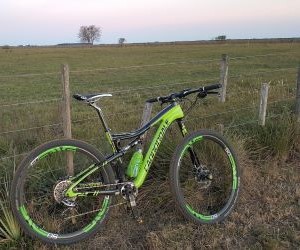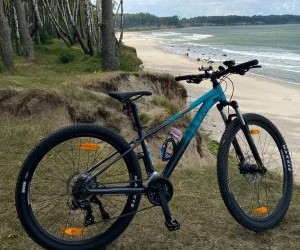Explore the best cycling and bike touring routes in Nadi, Fiji. Ride coastal roads, explore hidden villages, and soak up island vibes on two wheels.
WHAT ARE THE BEST APPS FOR CYCLING ROUTE DISCOVERY?
Cyclists of every level know that half the thrill of biking lies in discovering new routes. From casual weekend riders to data-obsessed athletes, the right app can make exploration seamless while boosting performance. In this article, we dive deep into the best cycling route discovery apps available today, analyzing their features, mapping accuracy, community input, and usability. With insights tailored for both casual and competitive cyclists, we break down which apps stand out for route planning, real-time navigation, and ride tracking. By the end, you’ll have a data-packed guide to selecting the perfect cycling app that fuels your next adventure.

Why route discovery matters
Cycling is more than just getting from point A to point B; it’s about adventure, exploration, and performance improvement. Having access to reliable apps that provide accurate cycling routes transforms a simple ride into an optimized experience. For urban cyclists, apps can help find safe bike lanes or avoid heavy traffic zones. For mountain bikers, they provide trail maps and elevation profiles to anticipate challenges ahead. And for competitive cyclists, route data helps in pacing and conditioning strategies.
The rise of digital cycling tools
Over the past decade, cycling apps have evolved from basic GPS trackers to advanced platforms integrating artificial intelligence, real-time weather alerts, and social features. Apps today don’t just map your ride; they create a social and data-rich ecosystem. With global communities contributing routes, riders gain access to crowd-sourced knowledge that was previously limited to locals. This has democratized cycling adventures, whether you’re in a major city or a rural backroad.
Accurate mapping of cycling lanes, trails, and roads
Integration with wearable devices and power meters
Community-driven reviews and difficulty ratings
Offline maps for remote cycling adventures
Ultimately, the right cycling app ensures that each ride is safer, more efficient, and more exciting. Instead of wasting time on trial and error, cyclists can rely on data-driven guidance to unlock better riding experiences.
Top cycling apps today
With dozens of cycling apps available, identifying the leaders comes down to usability, accuracy, and value for the rider. Among the top contenders are Strava, Komoot, Ride with GPS, MapMyRide, and Trailforks. Each offers unique features tailored to different types of cyclists, from data enthusiasts to casual adventurers.
Strava: The social cyclist’s choice
Strava is the go-to platform for cyclists who love tracking performance and competing against peers. It’s known for its “segments” feature, allowing riders to compare times on specific stretches of a route. Beyond discovery, Strava thrives on its community element, letting users share routes, stats, and photos. For those motivated by competition, it’s the most addictive cycling app out there.
Komoot: For adventure seekers
Komoot excels in route discovery with its focus on adventure cycling. It uses detailed topographic data to suggest routes tailored to fitness levels, terrain preferences, and bike type. For bikepackers and gravel riders, Komoot is invaluable because of its offline maps and elevation insights. The app’s ability to break down terrain type ensures riders are never surprised by unpaved trails or steep climbs.
Ride with GPS: Data-rich planning
Ride with GPS shines for cyclists who enjoy planning every detail. It provides advanced tools for cue sheets, turn-by-turn navigation, and customizable metrics. Cyclists can import and export GPX files, making it perfect for training and organized events. With its robust integration with cycling computers, it’s often the first choice for competitive riders.
Strava: community and competition
Komoot: adventure-first exploration
Ride with GPS: precise planning
MapMyRide: fitness-focused tracking
Trailforks: mountain biking excellence
Each of these apps provides a different lens on the cycling experience. Casual cyclists may lean toward MapMyRide’s fitness features, while mountain bikers would get more value from Trailforks’ detailed trail networks. The key is matching the app to your riding style.
Choosing the right app
Selecting the best app depends largely on your cycling goals. Competitive riders need detailed metrics and seamless device integration. Casual fitness cyclists may prefer apps that blend training with community support. Adventure seekers, on the other hand, value offline maps and terrain insights over leaderboards.
Factors to consider
When evaluating cycling apps, cyclists should weigh several key factors. These include usability, cost, mapping accuracy, and compatibility with devices like Garmin or Wahoo. An app that works beautifully for a road racer may feel overcomplicated for a weekend leisure rider.
Cost: subscription-based vs. free features
Mapping detail: city cycling vs. off-road trails
Integration: wearables and cycling computers
Community: peer sharing and route reviews
Offline usability: critical for remote adventures
Future of cycling apps
As technology continues to evolve, the next generation of cycling apps will likely incorporate AI-driven route recommendations, augmented reality overlays, and deeper health analytics. Imagine an app that adjusts your ride in real-time based on fatigue levels measured by biometrics. Cyclists should expect a shift from static mapping to dynamic, personalized route generation.
In conclusion, the best cycling route discovery app isn’t universal—it’s the one aligned with your riding style and goals. From Strava’s competitive spirit to Komoot’s adventure maps, there’s a digital tool ready to elevate every ride.
YOU MAY ALSO BE INTERESTED








